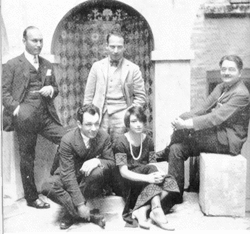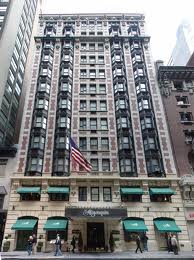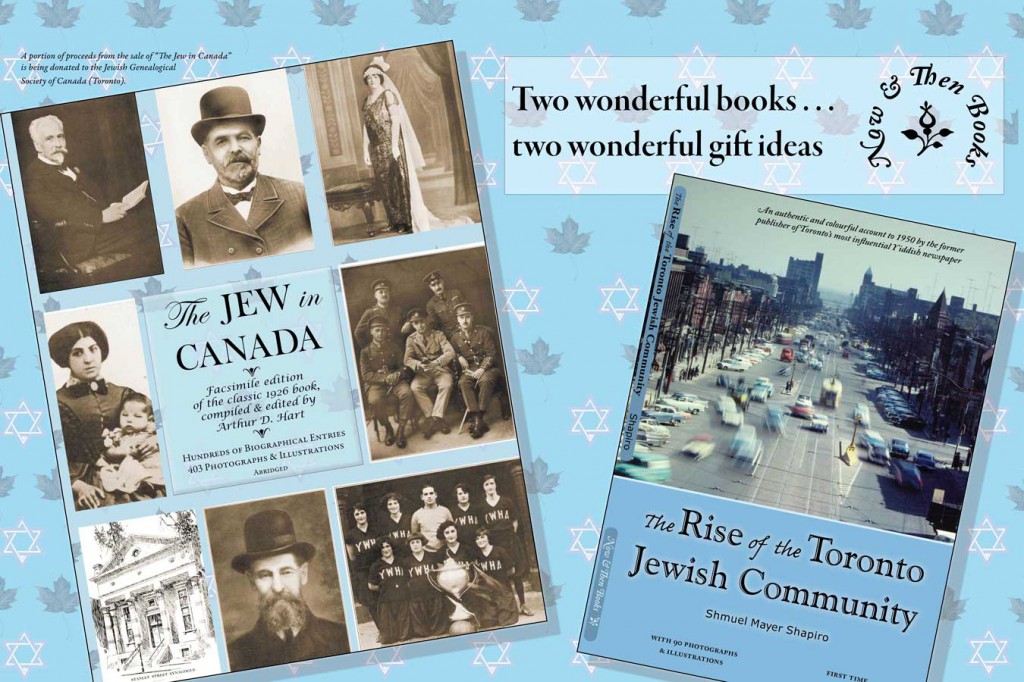
Founding members of Algonquin Round Table(l-r): Art Samuels, Charlie MacArthur, Harpo Marx, Dorothy Parker and Alexander Woollcott
“Harpo Marx, having played a mute in all his films, was probably the most articulate of all the Marx brothers,” declares Barbara McGurn as we sit in the Oak Room of New York’s famed Algonquin Hotel, awaiting the entrance of cabaret performer K.T. Sullivan.
The next moment McGurn, who is equal parts literary scholar and hotel publicist, launches into an anecdote about the young Tallulah Bankhead, whose family put her up at the Algonquin and asked its manager, Frank Case, to watch over her. “Frank Case said, ‘I can either run a hotel or keep an eye on Tallulah — not both.'”
About Dorothy Parker, who lived at the hotel in the 1920s and was part of its legendary Round Table, the well read McGurn waxes almost poetic. “My feeling is that Parker and (Robert) Benchley were really of their time. Her poetry was wonderful. I think she’s a cult figure among women. Adolescent girls feel about Parker and her poetry the way adolescent boys feel about Catcher In The Rye.”
Though her conversation roves to Franklin P. Adams, Noel Coward, William Faulkner, Edna Ferber, F. Scott Fitzgerald, George S. Kaufman, Sinclair Lewis, Harold Ross, Robert Sherwood, Gertrude Stein, Alexander Woollcott and other writers associated with the hotel and its famed literary circle, McGurn keeps returning to the subject of Dorothy Parker, like a hummingbird intoxicated by the bittersweet nectar of Parker’s ironic and sometimes caustic wit.
 Brevity, according to this witty epigrammatic writer, “is the soul of lingerie.” Understanding, said she, consists of “mutual praise and pity.” And Love? “Quicksilver in the hand/ Leave the fingers open and it stays in the palm; clutch it and it darts away.” Regarding the sexes, she perceived that “Woman wants monogamy; Man delights in novelty/ Love is woman’s moon and sun; Man has other forms of fun/ Woman lives but in her lord; Count to ten and man is bored.” And it was Parker who made the oft quoted if somewhat myopic observation: “Men seldom make passes/ At girls who wear glasses.”
Brevity, according to this witty epigrammatic writer, “is the soul of lingerie.” Understanding, said she, consists of “mutual praise and pity.” And Love? “Quicksilver in the hand/ Leave the fingers open and it stays in the palm; clutch it and it darts away.” Regarding the sexes, she perceived that “Woman wants monogamy; Man delights in novelty/ Love is woman’s moon and sun; Man has other forms of fun/ Woman lives but in her lord; Count to ten and man is bored.” And it was Parker who made the oft quoted if somewhat myopic observation: “Men seldom make passes/ At girls who wear glasses.”
Daughter of a Jewish father, Dorothy Rothschild Parker (1893 1967) is especially topical right now, says McGurn, because this is the centenary year of her birth and because director Robert Altman is currently producing a cinematic biography of her for release later this year. “As you get older you understand what she was talking about love, the ruefulness of it all…. You see how insightful her poetry was, how she understood about life as a woman. However, I don’t think she was a feminist.”
The British are especially intrigued by the Round Table, says McGurn, possibly because of parallels to British literary circles like Bloomsbury or the Mermaid Tavern of Elizabethan times. “In Shakespeare’s day, I don’t think there were any women at the Mermaid Tavern, unless they were wenches. The Mermaid was certainly a collection of wits but on a cruder level, I’m sure. They weren’t quite so genteel as at the Algonquin.”
Edna Ferber once wrote of the Round Table: “Their standards were high, their vocabulary fluent, fresh, astringent and very, very tough. Theirs was a tonic influence, one on the other, and all on the world of American letters. The people they could not and would not stand were the bores, hypocrites, sentimentalists and the socially pretentious. They were ruthless toward charlatans, toward the pompous and the mentally and artistically dishonest. Casual, incisive, they had a terrible integrity about their work and a boundless ambition.”
This year marks the 75th anniversary of the Round Table, and McGurn says she is “agitating” for two historical plaques, one outside the hotel and another in the Rose Room where a multitude of famous Round Table ripostes first resounded. “We’re a cultural landmark as well as an architectural landmark,” she says. “The Plaza and the Waldorf Astoria are also architectural landmarks, and while I don’t want to disparage either of those establishments, neither would call itself a cultural landmark.”
According to Literary New York: A History And Guide by Susan Edmiston and Linda D. Cirino (McGraw Hill, 1976; reprinted 1991) , “There is a myth that anything written at the Algonquin must be a success. Perhaps in hope, if not belief, many writers including Tennessee Williams, John Updike, Bruce Catton, Peter De Vries, Gore Vidal, Graham Greene, Gunter Grass, Art Buchwald, Thornton Wilder and John Osborne still stay at the hotel.”
Although the Rose Room has been lovingly restored, McGurn readily admits that its historic centrepiece has not survived. “We literally lost the Round Table. Don’t forget: this was a functioning hotel. It wasn’t somebody’s home. If you have a table and the legs go, you replace it. Had we known, we would have had it repaired.”
Small and cosy, and elegantly decorated in the Edwardian fashion, the Algonquin Hotel is located at 59 W. 44th St. in Manhattan. Telephone: 212 840 6800. Rates for its 165 rooms and suites begin at about US$195. ♦
© 1993







